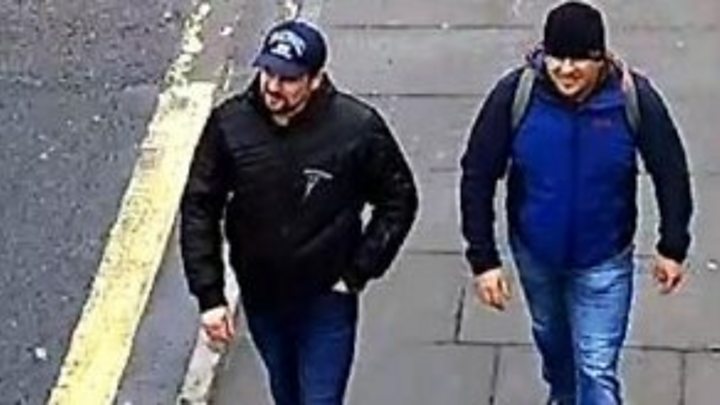 Russian spies have been accused of involvement in a series of cyber-plots across the globe, leading the US to level charges against seven agents.
Russian spies have been accused of involvement in a series of cyber-plots across the globe, leading the US to level charges against seven agents.
What is Russia accused of?
- The Netherlands has accused four Russians of plotting to hack the Organisation for the Prohibition of Chemical Weapons (OPCW), which had been probing the chemical attack on a Russian ex-spy in the UK
- The UK government accused the GRU of being behind four high-profile cyber-attacks, whose targets included firms in Russia and Ukraine; the US Democratic Party; and a small TV network in the UK
- The US said its anti-doping agency and the US nuclear energy company Westinghouse were targeted by Russian intelligence
- Canada said “with high confidence” that breaches at its centre for ethics in sports and at the Montreal-based World Anti-Doping Agency were carried out by Russian intelligence

A series of astonishing revelations
by James Landale, BBC diplomatic correspondent The revelations about how the British and Dutch security agencies disrupted the operations of the GRU are astonishing in their detail and their openness. This is not what secretive intelligence agencies normally do. But the willingness of both countries to be so candid illustrates how determined both they and some other Western governments are to try to push back against what they see as a concerted pattern of Russian aggression. “I imagine Mr Putin is shouting at one or two people right now,” a cheerful British official told me.What has Russia said?
Russia’s foreign ministry – which had earlier dismissed the allegations from the UK and the Netherlands as “Western spy mania” – released an official statement late on Thursday, saying it was the victim of “yet another stage-managed propaganda campaign”.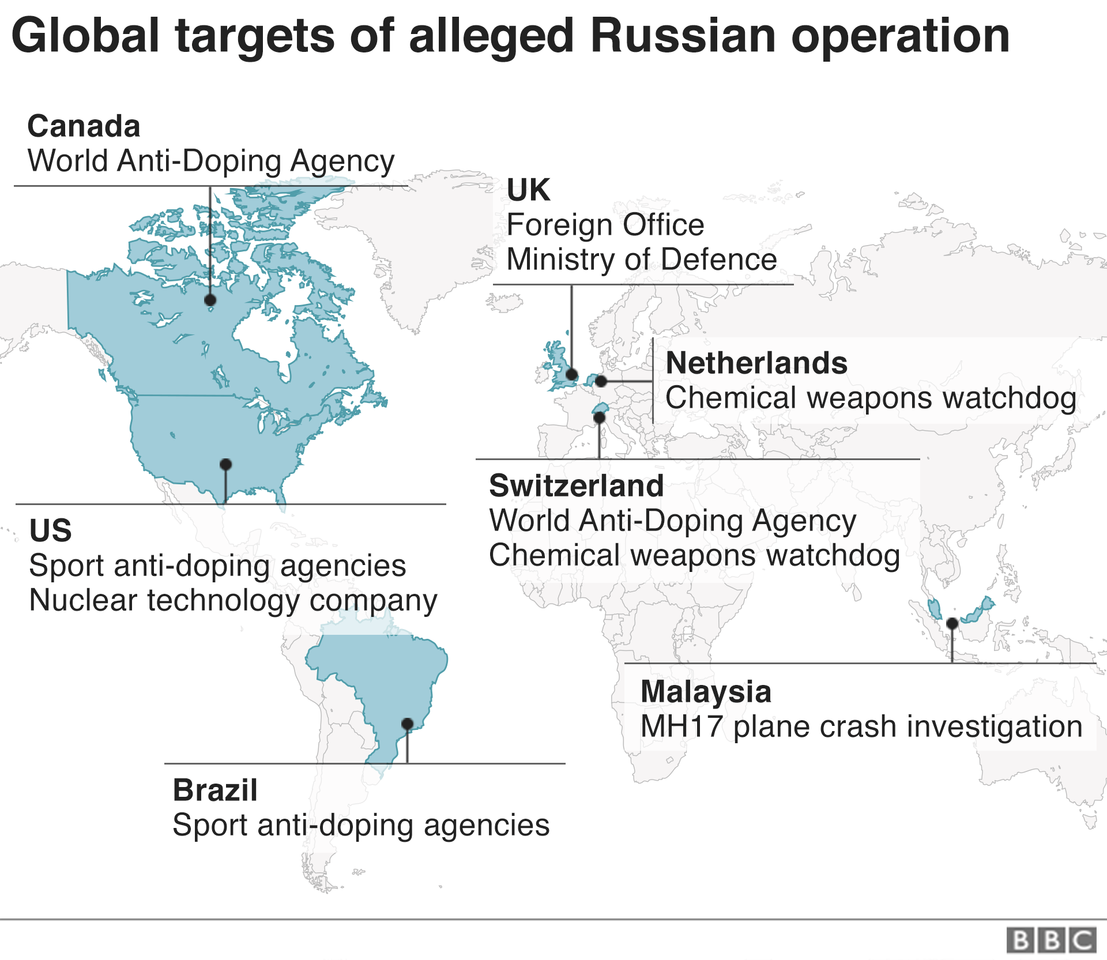
What have the other countries said?
John Demers, US Assistant Attorney General for National Security, told a press conference in Washington that many of the attacks were aimed at delegitimizing sports bodies and “altering perceptions of the truth”. He said the attacks were how Russia retaliated for bans on its athletes following evidence it was systematically using drugs to enhance their performance. As a result of the findings, the US has indicted seven people, four of whom were the men expelled from the Netherlands, while the other three were among those charged in July with hacking Democratic officials during the 2016 US elections.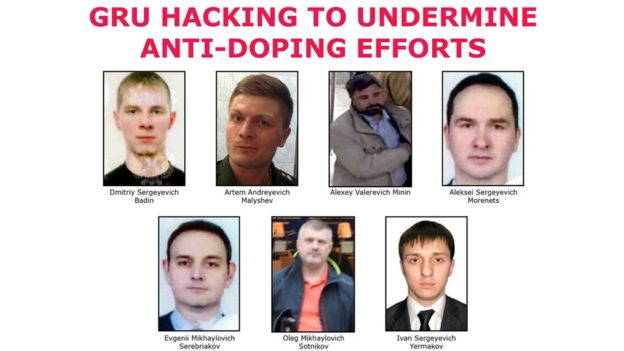 The FBI released this “wanted” poster, naming and picturing the seven men[/caption]
The FBI released this “wanted” poster, naming and picturing the seven men[/caption]What were the suspects doing in the Netherlands?
The four suspects identified by Dutch officials had diplomatic passports – which meant the Netherlands could not arrest them as diplomats are in theory immune from prosecution in their host country – and included two IT experts and two support agents, officials said. The four hired a car and parked it in the car park of the Marriot hotel in The Hague, which is next to the OPCW office, to hack into the OPCW’s wifi network, Major General Onno Eichelsheim from the Dutch MIVD intelligence service said.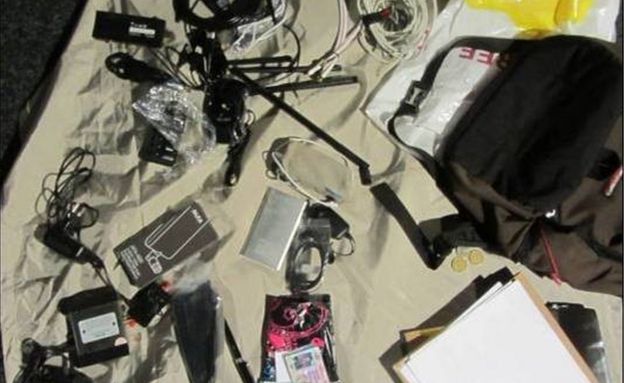 The suspects were allegedly found to have specialist hacking equipment photo: DUTCH GOVERNMENT[/caption]
The suspects were allegedly found to have specialist hacking equipment photo: DUTCH GOVERNMENT[/caption]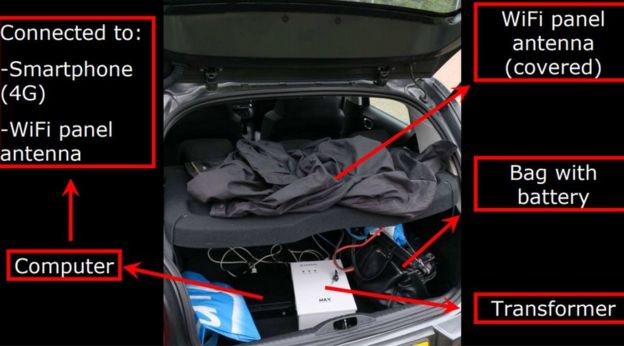 MINISTRIE VAN DEFENSIE[/caption]
MINISTRIE VAN DEFENSIE[/caption]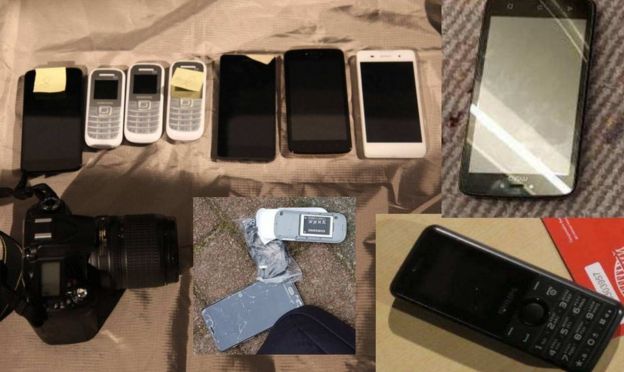 MINISTRIE VAN DEFENSIE[/caption]
MINISTRIE VAN DEFENSIE[/caption]Who are the suspects?
They were named by the MIVD as hackers Alexei Morenetz and Yevgeny Serebriakov, and support agents Oleg Sotnikov and Alexei Minin. Officials said they were from the GRU’s Unit 26165, which has also been known as APT 28. The UK’s ambassador to the Netherlands, Peter Wilson, said the unit had “sent officers around the world to conduct brazen close access cyber-operations” – which involve hacking into wifi networks. He said the hackers were planning to travel on to the OPCW-certified laboratory in Spiez near Berne in Switzerland, where the Novichok nerve agent used in March’s attack on Sergei Skripal and his daughter in the British city of Salisbury was identified.